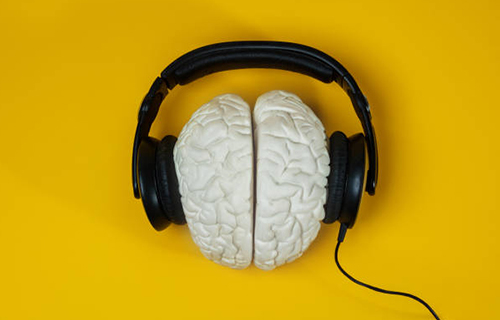
Humanity has been involved and accompanied by music since ancient times. Music has a long and unique history, and people have been involved with it in every way since ancient times. The effect of music on the brain is underestimated because the human soul dances under the influence of music, making him dance, cry and fly. (I guess you’ve started crying)
The sound of music reaches the human brain through the auditory system.
This system is located in the lobes next to the ear, which in this way has its effect on the brain after processing. The human body’s reaction to music’s impact on the brain and soul can be due to the release of different neurotransmitters. Different neurotransmitters start to be released when you listen to your favorite music and feel it inside (like butterflies in your stomach, safe and sound).
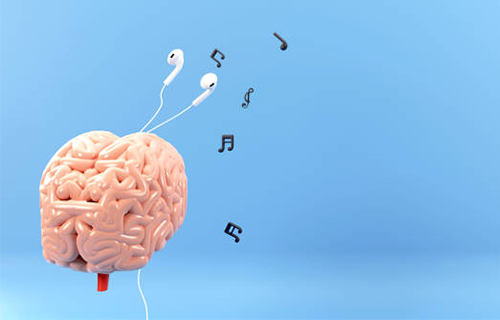
Among the secreted neurotransmitters, we can mention the release of neurotransmitters that cause happiness and excitement, such as serotonin and dopamine. Now the trick question is, what exactly are these neurotransmitters? Can the choice of music play a role in affecting the brain? What about the effect of music on the brain? How do we feel that affection? (I know you can see my sense of humor here) The rest of this neuroscience network article will answer all these questions.
Is the effect of music on the brain real?
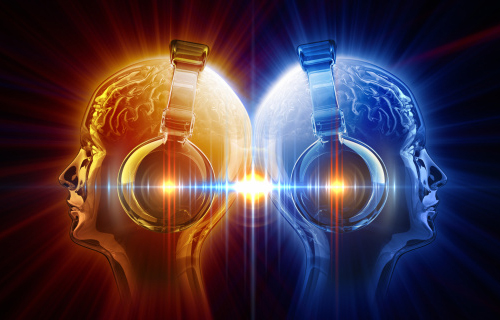
You may have had the experience of being revived by music at the beginning of the day or crying tears while listening to a sad song. The reason for these reactions on the part of humans is the function of your brain. The human brain is the most complex organ of the body. An appropriate response to most of the body’s reactions is its duty. Music is among the thousands of messages sent to the brain that lead to answers and replies. The response of the brain is the way that the music influences it.
As a result, it is clear that music has a profound effect on our soul and body; the relationship between the human body and soul cannot be ignored in any way. The human brain affects the human soul and body through the perception of sound and its processing. In the meantime, the effect of your favorite or sad music on your mood is significant. In addition, the impact of music listened to at high volume is greater than that of music at low volume.
As a result of the efforts and studies of scientists, they realized that there is no place in the brain to analyze music, but in further studies, they discovered a site that can understand and control tone and rhythm. The effect of music on the brain is not only on the temporal lobe. When nerve signals reach the brain, a significant part of the brain is stimulated and activated.
Musical notes are one of the factors that the brain reacts to differently when hearing them. Each note in music creates a different sound, and we can see the effect of music on the brain. Each musical note can be seen as a letter to the brain, to which your brain responds. Music has seven main sounds, each of which affects the brain differently. This article introduces you to the effect of music on the human brain.
The effects of each genre and style of music on the brain
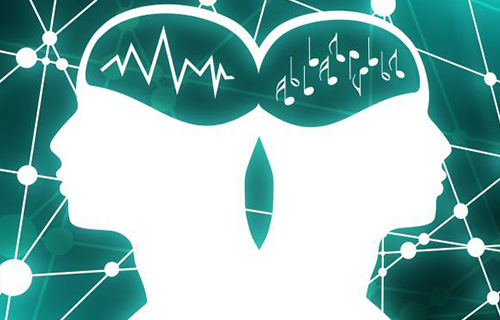
The world of music is vast and divided into different styles and genres. Each person chooses different types according to their interest. Most people spend a lot of time listening to their favorite genre, but none consider how it can affect the brain and body, and here we reveal the effect of music on the brain.
For example, when you listen to rock music, your brain sends messages to the happy neurotransmitters in your body, or this style of music can increase your concentration. But choosing a sad music style can change your mood and make you miserable or cry. As a result, whatever type of music you choose can have different effects, and you can do something different at that moment. In the following, we discuss each genre as the effect of music on the brain:
1. Effect of Rock music on the human brain
Rock music can create a wonderful feeling for any person. Recent studies show that dark theme has a positive effect on the brain, causing the release of happy neurotransmitters such as endorphins, dopamine, and oxytocin, and a person achieves happiness and high energy. This high energy and joy make the human body healthy and refreshed. High concentration can also be achieved by listening to these dark songs; Because the effect of this type of music on the brain is such that it plays a role in attention and even strengthening memory.
Rock music can affect the neurotransmitter called oxytocin and cause its release. The neurotransmitter oxytocin is produced in a part of the brain called the hypothalamus. Oxytocin is a neurotransmitter of happiness and pleasure that creates a beautiful human feeling. Rock music is directly related to the release of this neurotransmitter and causes joy and health in a person.
2. How about Opera?
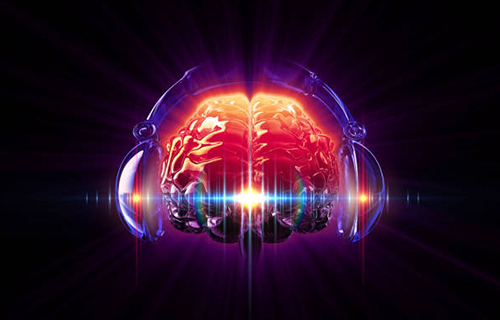
Opera music stimulates different parts of the brain and causes peaceful sleep, stress reduction, memory enhancement, and reduction of breathing, heart, and blood pressure. Studies show that opera music reduces the brain’s cortisol hormone and reduces stress and blood pressure. Listening to opera music also relaxes the mind. This type of music can be used as an exercise to relax; Because it causes the release of brain neurotransmitters such as dopamine, and in this way, the effect of music on the brain is visible.
A few years ago, opera fans were asked what they thought about this style of music. Most of them gave the same answer and found this style of music relaxing. Opera music releases happy neurotransmitters and also relaxes the listener. People who choose opera music get angry in a few situations; Because this kind of song has impressive effects on their brains; the impact of music on the brain is revealed.
3. Effect of Deep music on the brain
Deep music is made from the latest music devices. A profound piece is created with different types of notes and musical instruments. This music can change the brain’s functioning and significantly impact the listener’s mood. Deep music can raise the energy of any person and make him move. This style of music makes the brain active and alert, and you can boost your vitality. For more effect of this type of music on the brain, it is recommended that the song’s volume be loud. Audio devices can also be used for more impact.
4. Dark Music
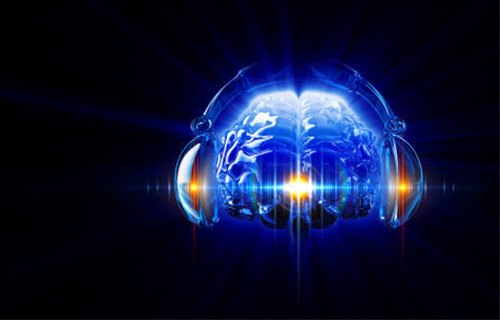
This style of music can bring peace to every person’s mind. Dark music is known as one of the most beautiful music in the world due to its many fans. This music calms the human brain and relaxes the listener while listening. Dark music affects the brain and releases hormones in the body so that the person can relax. A person’s relaxation makes their brain cells work well and work properly to manage other organs.
The effect of music on neurotransmitters of the brain
Have you ever felt happy while listening to your favorite music? When you play your favorite music, your brain releases happy neurotransmitters; Because the brain thinks that you have reached a state of relaxation and are calm. One of the neurotransmitters released when listening to music is endorphin. This neurotransmitter is released in the brain and causes a feeling of excitement and happiness in the human body. This neurotransmitter is released when you exercise, eat your favorite food, and listen to your favorite music.
Another neurotransmitter released by the brain when listening to music is dopamine. Dopamine is the happiness neurotransmitter of the body, which can improve physical health and make the person’s mental health happy, and we see the effect of music on the brain. This neurotransmitter is also found in addictive substances and narcotics. But music is another factor that can release this neurotransmitter without side effects and achieve peace and happiness.
To better secrete happy and relaxing neurotransmitters with music in the human body, you can adjust the music’s volume, type, and style. If your music is played loud and alone, it can multiply the results in the brain and eliminate stress to a great extent. In addition to sound, the music you choose should be your favorite so that you can feel the effect of music on the brain.
The effect of music on health
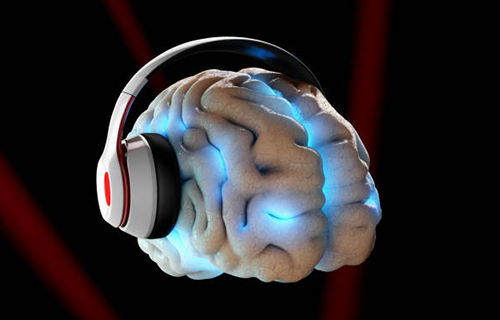
In addition to the positive effects of music on the brain, such as memory enhancement and brain development, music also plays a role in physical health. When the sound of music reaches the brain, it increases the motivation and concentration of the brain and is beneficial for human health and physical performance. Also, music helps to strengthen the part of the brain that plays a role in the coordination of the body. Listening to your favorite music increases the quality of life and improves health.
When you play your favorite music, the human brain can understand it. Your body needs to be happy To be healthy. Then, To achieve happiness, your brain must be convinced that you are good—one of the ways you can send a good mood message to the brain.
You are listening to music. Listening to music is directly related to our emotions; Because it activates the parts of the brain that are involved in our feelings to respond to music. As a result, you should be careful in choosing a theme; Because when music is not the subject of your post, the brain does not understand it, and nothing special happens in your brain, and here, we lose the effect of music on the brain.
As mentioned, listening to music releases neurotransmitters in your body, which makes you happy and refreshed. When stress is gone and you are happy, you will be physically and mentally healthy. The effect of music on the brain causes dopamine hormones to be released. The release of the neurotransmitter dopamine causes physical health such as heart health, body muscle function, nails, and hair. In the following, we examine the times when the effect of music on the brain improves health:
1. The effect of music on the brain During exercise
Since childhood, we have heard that exercise makes the body and soul healthy. Exercising requires energy and motivation. Music can be used to get power and inspiration before and during training. Motivational or your favorite music can increase energy and motivation by releasing happy neurotransmitters. The effect of music on the brain makes the brain start and continue exercising. You may have seen that athletes use headphones and similar devices during training; this performance of athletes shows the effect of music on the brain and exercise.
2. The effect of music on the brain when you are sad
When you are unhappy, your body goes into depression, causing the brain’s hippocampus, thalamus, and cortex to shrink or shrink in size. Many brain parts are activated when listening to music, preventing brain shrinkage. Also, to cure depression, the brain must secrete happy hormones and be convinced that you have no problem.
To release hormones, you can create this feeling with music and relieve depression and discomfort. When they are sad, you have to play calm music; this sends a message of peace to the brain. As a result, your negative energy turns positive, and you become happy.
3. In the morning
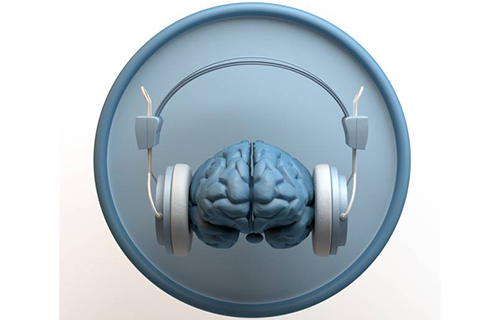
When you wake up, most of the time, your energy level is at its lowest. You can use music to boost your energy and start a stormy day. The effect of music on the brain makes your brain wake up and accept that now is not the time to sleep.
After waking up first thing in the morning, your brain feels it is not time to wake up, and you need more rest. But you can tell your brain that playing your favorite music is the time to wake up. Motivational music can help a lot to feel good in the morning.
4. The effect of music on the brain while you are meditating
Meditation practice is unique for reducing stress and anxiety. This practice reduces stress and, in turn, improves health. This exercise affects the brain like music, and as a result, the person relaxes. When meditation and music are combined, and the piece is placed next to meditation exercises, the effect of meditation exercises is multiplied. The songs useful for meditation and should be used to multiply their impact are quiet and silent. These songs can increase your concentration and replace stress with relaxation.
The effect of music on memory function
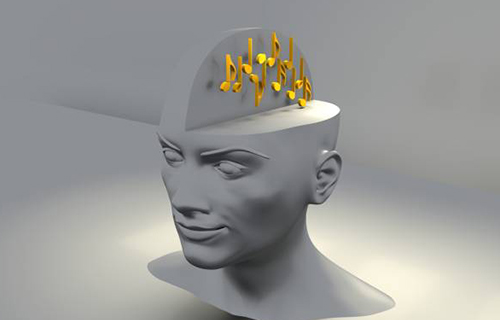
Two studies were conducted in the United States and Japan in the past few years. They studied and tested the effect of music on the brain and memory. After research, Ahan found out that music revives memories; on the other hand, it plays an influential role in creating and forming new memories. By experimenting on older people, they found that music can affect a person’s memory.
In today’s studies, scientists found that listening to music can enhance memory. When you play your favorite music and focus on the theme, many brain parts are activated, and brain activity increases. As a result of this more brain activity, the brain cells function properly, strengthening memory. The effect of music on the brain is also favorable for people who are depressed and people who have diseases like Alzheimer’s. In the following, we will examine each person’s type and music’s effect on their brain.
1. The effect of music on ordinary people
Ordinary people or people who are physically healthy can make their memory many times stronger by learning a musical instrument like the guitar. When a person begins to learn music, the gray cells in the brain increase in the region of the brain, and as a result, the memory is strengthened. For example, playing the guitar requires coordinated fingers, and training can support the part of the brain that plays a role in memory and processing.
2. The effects of music on the brain of Alzheimer’s patients

By age, any person may have Alzheimer’s disease due to the destruction of nerve cells. Alzheimer’s appears in the form of forgetfulness, inability to speak, or impaired vision. Scientists have conducted many studies in the field of Alzheimer’s disease.
Following their research, they found many results, but one of the most surprising results was the relationship between music and Alzheimer’s. Today, scientists consider music to be one of the treatments for Alzheimer’s; Because piece significantly affects brain cells.
The effect of music on the brain makes music stored in long-term memory, and a person spends a lot of time forgetting it. When a person with Alzheimer’s disease listens to old music that they like, the parts of the brain that received that music when they were healthy can be activated. This function can play an essential role in improving their disease.
3. The effect of music on the brain of people with depression
Depressed people involved with grief may have slow and poor memory. To strengthen their memory, you can turn to music; Because the effect of music on the brain to improve slowness of memory is very high and can help them significantly.
Being sad is formed in their soul, and by listening to their favorite music, they can forget the memories that make them unhappy, and healing them through music can also strengthen their memory. According to studies, music reduces stress by 65% and calms the mind. The best music suggested to depressed people is classical and native music. This type of music can soothe the human mind and body and make the eyes function better.
Conclusion
In this neuroscience network article, we discussed the effect of music on the brain. We mentioned that music could have profound effects on our brains. This influence causes the human brain to release happy neurotransmitters like endorphins and dopamine.
This neurotransmitter makes a person fresh and energetic, and his body stays healthy about this issue. Also, listening to music can make the brain function properly and strengthen memory. The effect of music on the brain is also beneficial for Alzheimer’s patients.


zoritoler imol
Simply desire to say your article is as amazing. The clarity in your post is simply excellent and that i can assume you’re knowledgeable on this subject. Well together with your permission allow me to grab your feed to keep up to date with approaching post. Thank you a million and please continue the gratifying work.
neuroscience User
Thank you for your comment, friend 😉 At Neuroscience Network, We publish all the content with complete research. Please share our content with your friends.
neuroscience User
Thank you for your comment, friend 😉 At Neuroscience Network, We publish all the content with complete research. Please share our content with your friends.